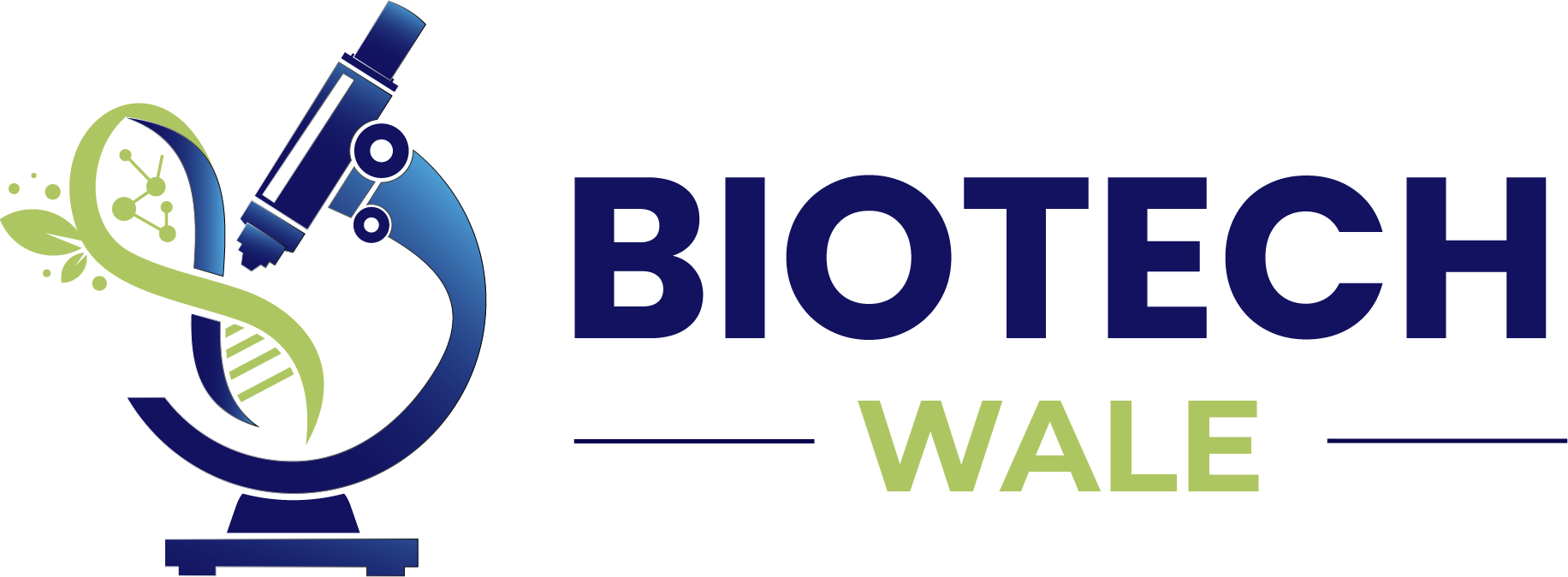Introduction to Biotechnology
Welcome to the exciting world where science meets innovation – biotechnology! Imagine a realm where cutting-edge research transforms into real-world applications, revolutionizing industries and improving lives. In this blog post, we will delve into the fascinating realm of biotechnology courses, exploring the dynamic intersection of science and industry. Join us on this journey as we unravel the possibilities that biotechnology offers for aspiring professionals looking to make a difference in the world!
The Growing Demand for Biotechnology Professionals
Biotechnology is no longer just a buzzword; it’s a thriving industry with an increasing demand for skilled professionals. As advancements in science and technology continue to evolve, the need for individuals with expertise in biotech is on the rise.
Companies across various sectors, from pharmaceuticals to agriculture, are seeking talented individuals who can drive innovation and solve complex challenges. The growing demand for biotechnology professionals is evident in the numerous job opportunities available worldwide.
With a diverse range of career paths available, from research scientists to quality control analysts, those with a background in biotechnology have ample options to explore. Whether working in the lab or out in the field, these professionals play a vital role in shaping the future of healthcare, food production, and environmental sustainability.
As industries increasingly rely on cutting-edge biotech solutions, professionals equipped with relevant skills and knowledge will continue to be highly sought after. This trend highlights the promising outlook for those considering a career in biotechnology.
Types of Biotechnology Courses
When exploring the world of biotechnology, you’ll come across a diverse range of courses that cater to different interests and career goals.
One common type is the Biomedical Biotechnology course, focusing on applications in healthcare and pharmaceutical industries. It covers areas like genetic engineering and drug development.
Another exciting option is Agricultural Biotechnology, delving into enhancing crop productivity, developing genetically modified organisms (GMOs), and sustainable farming practices.
Industrial Biotechnology courses teach students about utilizing biological processes for industrial purposes such as biofuel production or waste management.
Bioinformatics courses are also gaining popularity, combining biology with computer science to analyze biological data using algorithms and software tools.
No matter your passion or career aspirations within the field of biotechnology, there’s a course out there to help you achieve your goals!
Top Universities Offering Biotechnology Programs
When it comes to pursuing a career in biotechnology, choosing the right university can make all the difference. Several top universities around the world offer exceptional biotechnology programs that provide students with a strong foundation in this cutting-edge field.
Universities like Harvard University, Massachusetts Institute of Technology (MIT), Stanford University, and University of California – Berkeley are renowned for their comprehensive biotechnology courses. These institutions boast state-of-the-art facilities, expert faculty members, and research opportunities that shape aspiring biotech professionals into industry leaders.
In Europe, institutions such as ETH Zurich in Switzerland and Cambridge University in the UK also offer prestigious biotechnology programs. Their emphasis on innovative research and practical skills development equips students with the knowledge needed to thrive in the competitive biotech landscape.
For those looking to delve into Asia’s booming biotech scene, National University of Singapore and Kyoto University in Japan stand out for their advanced curriculum and collaborative partnerships with industry leaders. Choosing a university wisely is crucial for launching a successful career in the dynamic field of biotechnology.
Career Opportunities in the Biotech Industry
Are you fascinated by the intersection of science and industry? The biotechnology field offers a myriad of career opportunities for those passionate about making a difference in healthcare, agriculture, environmental conservation, and more.
In biotech companies, roles span from research scientists developing innovative treatments to regulatory affairs specialists ensuring compliance with laws. You could find yourself working in quality control labs or even venture into entrepreneurship by starting your own biotech firm.
With the continuous advancements in technology and growing demand for sustainable solutions, professionals in biotechnology are at the forefront of shaping our future. Whether you aspire to work on gene editing techniques or bioinformatics algorithms, there is no shortage of exciting paths to explore within this dynamic industry.
As a biotech professional, you have the chance to contribute towards groundbreaking discoveries that have real-world applications – improving lives, protecting the environment, and driving economic growth.
Salary Expectations for Biotech Professionals
Curious about the earning potential in the field of biotechnology? As a biotech professional, your salary can vary depending on factors like experience, education, and job role. Entry-level positions may start around $50,000 to $70,000 per year. With more experience and expertise, you could earn well above six figures annually.
Roles such as research scientists or biotech engineers tend to command higher salaries due to their specialized skills and knowledge. Biotech professionals working in pharmaceuticals or bioengineering sectors also have the chance to earn competitive salaries compared to other industries.
Additionally, pursuing advanced degrees like a Master’s or Ph.D. in biotechnology can lead to increased earning potential and open up doors for leadership positions within the industry. The field of biotechnology offers promising career prospects with opportunities for growth and financial stability.
Impact of Biotechnology on Society and the Environment
Biotechnology plays a crucial role in shaping society and the environment through its innovative applications. In agriculture, biotech crops help increase yields, reduce pesticide use, and enhance food security. This technology also contributes to sustainable practices by developing biofuels that lessen dependence on fossil fuels.
In healthcare, biotechnology enables the production of life-saving drugs and therapies, improving quality of life for many individuals. Genetic engineering advancements are revolutionizing personalized medicine approaches tailored to individual genetic profiles.
On the environmental front, bioremediation techniques are used to clean up polluted sites efficiently. Additionally, bioplastics offer a more eco-friendly alternative to traditional plastics by being bio-based and biodegradable.
The impact of biotechnology on society and the environment is profound and continues to evolve as new discoveries unfold.
Challenges and Ethical Considerations in the Field of Biotechnology
Navigating the field of biotechnology comes with its fair share of challenges and ethical considerations. One major challenge is the potential for misuse or unintended consequences of genetically modified organisms (GMOs). There’s a constant debate on balancing innovation with safety when it comes to developing new biotech products.
Ethical dilemmas arise when considering issues like gene editing, cloning, and data privacy in the biotech industry. Questions around who owns genetic information and how it should be used ethically are hot topics for discussion among professionals in the field.
Another challenge is ensuring that advancements in biotechnology benefit society as a whole without exacerbating existing social inequalities. Striking a balance between progress and equity requires careful consideration and collaboration across various sectors.
As technology continues to advance rapidly, staying ahead of potential risks and ethical concerns remains crucial for the future of biotechnology. It’s essential for professionals in this field to approach these challenges thoughtfully and responsibly to ensure positive outcomes for all stakeholders involved.
The Future of Biotechnology and Emerging Technologies to Watch Out For
The future of biotechnology is filled with exciting advancements and emerging technologies that are set to revolutionize the industry. One area to watch out for is synthetic biology, where scientists engineer biological systems for various applications ranging from medicine to sustainable energy solutions.
Another promising development is CRISPR technology, which allows for precise gene editing with implications in curing genetic diseases and enhancing crop yields. Nanobiotechnology is also on the rise, enabling researchers to manipulate materials at a nanoscale level for targeted drug delivery and diagnostic purposes.
Bioprinting is another groundbreaking technology that holds immense potential in creating tissues and organs using 3D printing techniques. Moreover, the integration of artificial intelligence and machine learning in analyzing vast amounts of biological data will drive innovation in personalized medicine tailor-made treatments.
As we look ahead, it’s clear that the future of biotechnology holds endless possibilities that will continue to shape our world in ways we never imagined before.
Conclusion
As we navigate through the dynamic world of biotechnology, it is evident that this field holds immense potential for growth and innovation. With the increasing demand for skilled professionals, pursuing a career in biotechnology can lead to exciting opportunities in various sectors such as healthcare, agriculture, and environmental conservation.
By enrolling in specialized biotechnology courses offered by top universities worldwide, individuals can acquire the knowledge and skills needed to thrive in this ever-evolving industry. The impact of biotechnology on society and the environment cannot be overstated, with advancements paving the way for sustainable solutions to global challenges.
Despite facing ethical considerations and challenges along the way, the future of biotechnology looks promising as emerging technologies continue to revolutionize how we approach scientific research and industrial applications. As we look ahead to what lies beyond, one thing remains clear – bridging science with industry through biotechnology will shape our world for years to come.





Average Rating